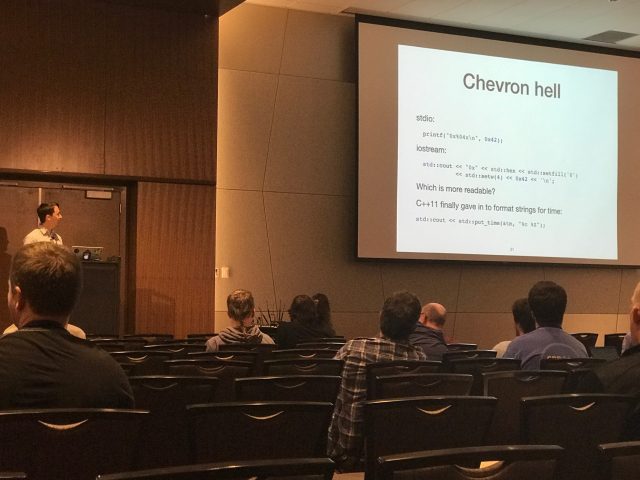Introducing Abseil, a new common libraries project--Titus Winters
A new library is out!
Introducing Abseil, a new common libraries project
by Titus Winters
From the article:
Today we are open sourcing Abseil, a collection of libraries drawn from the most fundamental pieces of Google’s internal codebase. These libraries are the nuts-and-bolts that underpin almost everything that Google runs. Bits and pieces of these APIs are embedded in most of our open source projects, and now we have brought them together into one comprehensive project. Abseil encompasses the most basic building blocks of Google’s codebase: code that is production tested and will be fully maintained for years to come.

 Cppcon continues!
Cppcon continues!